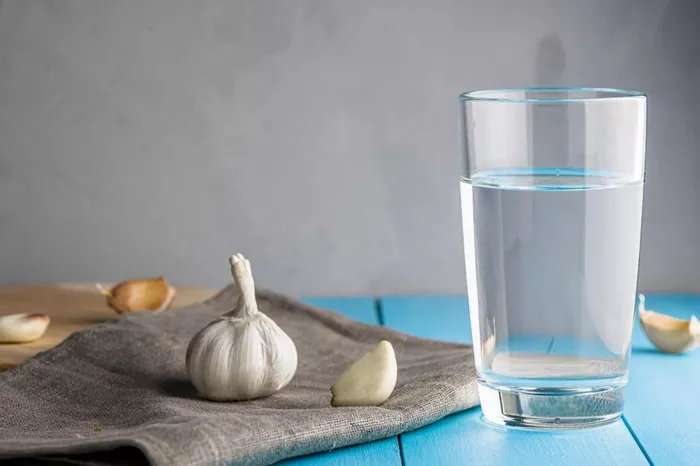High blood pressure, or hypertension, is a prevalent health condition that significantly increases the risk of cardiovascular diseases such as heart attacks and strokes. Managing blood pressure levels within a healthy range is crucial for overall well-being. While medications are commonly prescribed to control hypertension, there is growing interest in natural remedies, including garlic water, as potential alternatives or complementary interventions. In this comprehensive article, we will explore the research, mechanisms, safety considerations, and potential benefits of garlic water in lowering blood pressure.
Understanding Hypertension
Before delving into the specifics of garlic water, it’s important to understand hypertension and its implications. Blood pressure is the force exerted by the blood against the walls of the arteries as the heart pumps it throughout the body. It is measured in millimeters of mercury (mmHg) and consists of two numbers: systolic pressure (the pressure when the heart contracts) and diastolic pressure (the pressure when the heart relaxes between beats).
Normal blood pressure is generally considered to be below 120/80 mmHg. Elevated blood pressure (120-129/<80 mmHg) and hypertension (130/80 mmHg or higher) are significant health concerns that require management to prevent complications such as heart disease, stroke, and kidney problems.
The Role of Garlic in Health
Garlic (Allium sativum) has been used for centuries in traditional medicine for its potential health benefits. It contains bioactive compounds like allicin, diallyl disulfide, and S-allyl cysteine, which are believed to contribute to its therapeutic properties. These compounds have antioxidant, anti-inflammatory, antimicrobial, and cardiovascular effects.
Research on Garlic and Blood Pressure
Numerous studies have investigated the effects of garlic and garlic supplements on blood pressure. While much of the research has focused on raw garlic, garlic powder, or garlic extracts in pill form, there is limited but promising evidence regarding garlic water specifically.
A study published in the Journal of Nutrition and Metabolism examined the effects of garlic water on blood pressure in hypertensive individuals. Participants consumed garlic water daily for eight weeks, and the results showed a significant decrease in both systolic and diastolic blood pressure compared to baseline levels. The researchers concluded that garlic water may be beneficial in managing hypertension.
Another study published in the Journal of Cardiovascular Pharmacology explored the mechanisms of garlic water in lowering blood pressure. The researchers found that garlic water enhanced nitric oxide production, leading to vasodilation and improved blood flow. These findings suggest a potential physiological mechanism for the blood pressure-lowering effects of garlic water.
Mechanisms of Action
The mechanisms underlying garlic water’s potential to lower blood pressure are multifaceted and involve various pathways:
1. Vasodilation: Garlic compounds like allicin promote the relaxation of blood vessels, resulting in vasodilation. This widening of blood vessels reduces resistance to blood flow, leading to lower blood pressure.
2. Nitric Oxide Production: Garlic water stimulates the production of nitric oxide, a molecule that plays a key role in regulating blood vessel tone and promoting vasodilation. Increased nitric oxide levels contribute to improved endothelial function and blood pressure control.
3. Antioxidant Activity: Garlic contains antioxidants that scavenge free radicals and reduce oxidative stress. By protecting blood vessels from oxidative damage, garlic water may help maintain healthy blood pressure levels.
4. ACE Inhibition: Some studies suggest that garlic water may inhibit the activity of angiotensin-converting enzyme (ACE), which is involved in blood pressure regulation. ACE inhibitors are a class of medications commonly used to treat hypertension.
5. Anti-Inflammatory Effects: Chronic inflammation is linked to hypertension and cardiovascular disease. Garlic water’s anti-inflammatory properties may contribute to its overall cardiovascular benefits, including blood pressure reduction.
Safety Considerations
While garlic water is generally safe for most people when consumed in moderation, there are some considerations to keep in mind:
1. Allergies and Sensitivities: Some individuals may be allergic or sensitive to garlic. It’s important to monitor for any adverse reactions, such as skin rashes, digestive upset, or respiratory symptoms, when consuming garlic water.
2. Interactions with Medications: Garlic water may interact with certain medications, particularly blood thinners (e.g., warfarin) and medications for HIV/AIDS. Consultation with a healthcare professional is recommended, especially for individuals on medication regimens.
3. Digestive Upset: Consuming large amounts of garlic or garlic water may cause digestive discomfort, including bloating, gas, or heartburn. Adjusting the dosage and consuming garlic water with meals can help minimize these effects.
4. Odor and Taste: Garlic has a strong odor and taste that may not be palatable to everyone. Diluting garlic water or incorporating it into recipes can help mask the flavor while still providing potential health benefits.
5. Pregnancy and Breastfeeding: Pregnant and breastfeeding individuals should consult their healthcare providers before consuming garlic water regularly, as large amounts may not be recommended during these periods.
Future Directions and Conclusion
While preliminary research on garlic water’s effects on blood pressure is promising, further clinical trials are needed to validate its efficacy, optimal dosage, and long-term safety. Future studies should also explore the potential synergistic effects of garlic water with lifestyle modifications, such as dietary changes and exercise, in managing hypertension.
Conclusion
Garlic water shows potential as a natural remedy for lowering blood pressure, thanks to its vasodilatory, antioxidant, and anti-inflammatory properties. However, individuals should approach its use with caution, particularly if they have allergies, take medications, or experience digestive sensitivity. Consulting with a healthcare professional is advisable before incorporating garlic water into a hypertension management plan. With continued research, garlic water may offer a valuable addition to holistic approaches for cardiovascular health.


